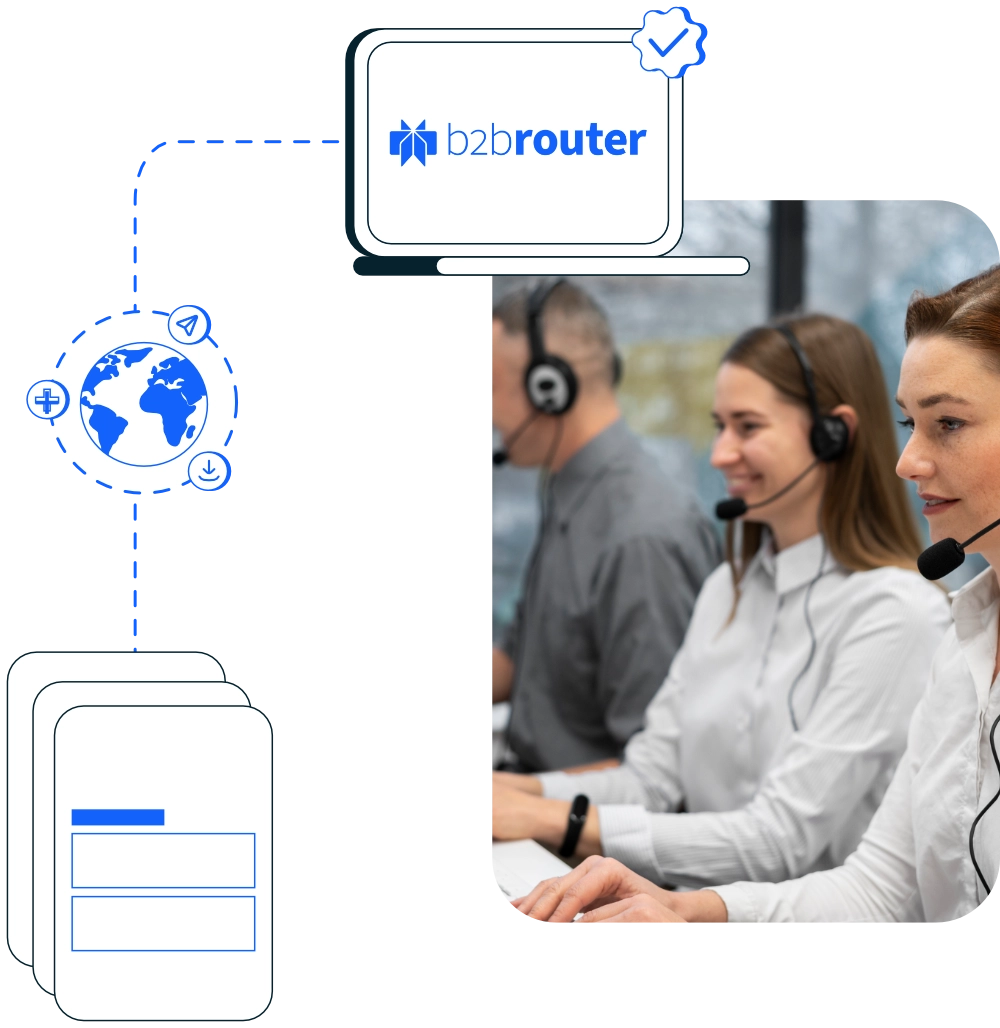If your company needs to issue invoices to clients or public agencies in Singapore, it’s important to know that the country now requires e-invoicing for many transactions. This is done through a national system called InvoiceNow, which allows invoices to be sent digitally using international standards. The goal is to make invoicing faster, more secure, and directly connected to Singapore’s tax authority, the IRAS.
InvoiceNow is based on the Peppol network, a global framework used in many countries. In Singapore, businesses must use a certified Peppol Access Point provider—such as B2Brouter—to connect to this network. This provider helps your company send invoices in the correct format and ensures they reach both your customer and the government system for GST (Goods and Services Tax) reporting.
Over the next year, Singapore will make e-invoicing mandatory for more businesses, and the current format (SG Peppol BIS 3.0) will be replaced by a new version called Peppol PINT SG. If you are new to doing business in Singapore, this page will help you understand the key dates, formats, legal rules, and how to start using InvoiceNow correctly from the beginning.
Important dates
1 November 2025
Mandatory for newly incorporated companies that voluntarily register for GST to use InvoiceNow.
1 April 2026
All new voluntary GST registrants must adopt e-invoicing through Peppol PINT SG and InvoiceNow.
Legislation
- B2G invoicing status
E-invoicing is mandatory when supplying goods or services to Singaporean public sector agencies via the InvoiceNow network.
- Accepted formats
All e-invoices must follow the Peppol PINT SG format, which replaces the former SG Peppol BIS Billing 3.0.
- Delivery channels
Invoices must be sent and received through the InvoiceNow network, using a certified Peppol Access Point provider such as B2Brouter.
- Regulating authority
The Infocomm Media Development Authority (IMDA) regulates the e-invoicing framework and approves Access Point providers.
- New registrants
From April 2026, all new companies registering for GST voluntarily must adopt e-invoicing through InvoiceNow.
- Archiving requirements
E-invoices must be archived in their original format for at least five years. B2Brouter ensures compliance with this through secure digital storage.
GST data reporting
All e-invoices sent via InvoiceNow are automatically shared with IRAS for Goods and Services Tax (GST) reporting.
B2B and B2C scope
B2B adoption is still voluntary. No mandatory timeline has been announced for B2B or B2C invoicing yet.
Government incentives
Singapore offers grants such as the Productivity Solutions Grant (PSG) to help companies cover the cost of adopting e-invoicing solutions.
Send e-invoices to Singapore securely with B2Brouter
Certified connection to InvoiceNow and IRAS
As an IMDA-certified Peppol Access Point, B2Brouter lets you send compliant e-invoices and automatically report to IRAS for GST.
Cross-border invoicing made simple
Connect with global partners using Peppol. B2Brouter enables seamless cross-border invoicing with legal certainty.
Adapted to the new e-invoice format
B2Brouter fully supports the Peppol PINT SG format, required for all e-invoices in Singapore moving forward.

Certifications
B2Brouter is certified with the ISO 27001 standard on information security management, certified as a Peppol Access Point Service Provider and a member of the EESPA.





